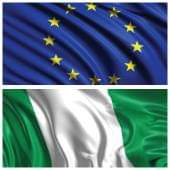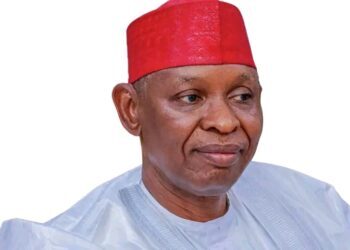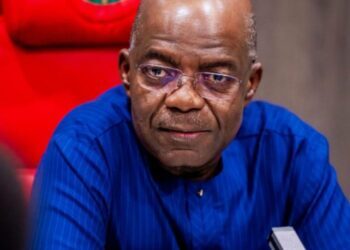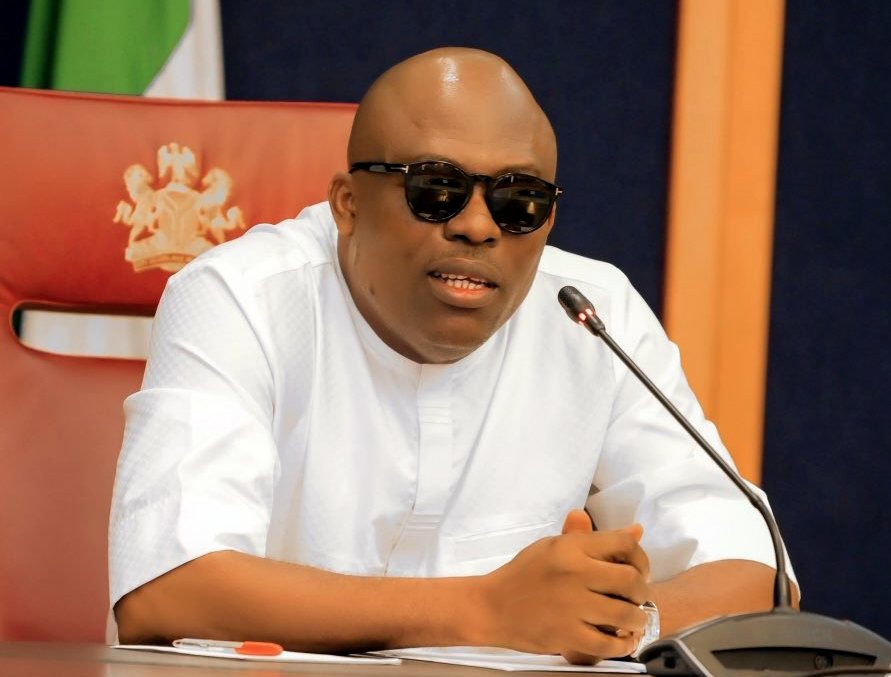The European Union’s report on Nigeria’s 2023 general election has caused a rift between the presidency, the Labour Party, and Civil Society Organisations (CSOs).
While the government questions the report’s credibility, the LP accuses officials of attempting to save face while the CSOs have emphasized the importance of addressing the election’s shortcomings and implementing the EU’s recommendations.
The presidency, the Labour Party (LP), and Civil Society Organisations (CSOs) hold conflicting opinions regarding the European Union’s (EU) report on the 2019 general election submitted to the Independent National Electoral Commission (INEC).
LP Accuses Government Of Saving Face
The LP responds to the EU report by accusing government officials of trying to protect their reputation rather than addressing the election’s flaws.
CSOs Call For Acknowledgement Of Gaps
CSOs, including Transparency International (TI), the Civil Society Legislative Advocacy Centre (CISLAC), and the Transition Monitoring Group (TMG), have urged the government to accept the EU report’s recommendations and acknowledge the gaps in the election process.
CSOs, represented by Awwal Musa Rafsanjani, highlight the alignment between the EU report and the observations made by local CSOs, stressing that the EU officials had been present in the country before the general elections.
They emphasize the need for INEC and the government to take the EU’s recommendations seriously to address the gaps identified.
Historical Precedent And Election Challenges
Rafsanjani cites former President Umaru Musa Yar’Adua’s acknowledgment of gaps in the election that brought him to power as an example. He also references the numerous court cases related to the 2019 election, suggesting that the existence of these cases signifies underlying issues.
CSOs Urge Government And INEC To Study Reports
The CSOs through their leader, Awwal Musa Rafsanjani advised the government and INEC to thoroughly study both the CSOs’ and the EU’s reports, making necessary amendments to improve the credibility of future elections.
Failure to address the identified gaps, Rafsanjani said could lead to decreased public participation in the electoral process.
IPAC Chairman Stresses Judicial Decision
Yabagi Sani, the National Chairman of the Inter-party Advisory Council (IPAC), acknowledges the government’s right to express its opinion on the EU report.
However, Sani, who spoke with Elanza News, emphasizes that the ultimate judgment lies with the court system, which will determine the credibility of the election.
Labour Party Condemns Government’s Response
The Labour Party criticizes the government’s attempts to discredit the EU report and considers it a feeble attempt to save face after the election. The party asserts that the EU report is just one of many submissions by international observers who viewed the election as flawed and unrepresentative of the majority.
LP Stands Firm On Election Rigging Allegations
The LP maintains its position that the 2019 election was heavily rigged in favor of the APC and its candidate. They argue that the government’s response is an afterthought aimed at concealing the obvious manipulation. The party urges the judiciary to deliver justice impartially for the sake of the nation and future generations.
INEC’s Independence Questioned
The LP highlights its concerns about INEC’s perceived lack of independence, claiming that the commission’s actions are influenced by the government’s wishes.
They emphasize the importance of the judiciary in upholding justice and restoring the trust of the Nigerian electorate.
“In light of the divergent views and criticisms surrounding the 2023 general election, it is crucial to consider the steps needed to ensure future elections are independent and credible,” the party said.
Strengthening Electoral Institutions:
Efforts should be made to enhance the independence and transparency of electoral institutions like INEC. Implementing reforms that bolster their credibility and ensure impartiality is essential.
Electoral Reforms: Identifying and rectifying the gaps in the electoral process is vital. Stakeholders should engage in constructive dialogue to review existing laws and regulations, seeking ways to improve transparency, fairness, and inclusivity.
Civic Education and Voter Awareness: Promoting civic education programs that educate citizens about their rights, the electoral process, and the importance of active participation can help create an informed electorate.
International Observer Missions: Collaborating with international organizations, such as the European Union, to conduct comprehensive and impartial observer missions can provide valuable insights and recommendations to enhance the credibility of future elections.
Strengthening Judicial Independence: Upholding the independence of the judiciary is crucial for ensuring that election-related disputes are adjudicated impartially. Continued efforts should be made to safeguard the judiciary from external influence.
Public Confidence-Building Measures: Governments, political parties, and electoral institutions should prioritize measures that foster public confidence in the electoral process. This can include transparent communication, regular updates on electoral reforms, and proactive engagement with civil society organizations and the media.
By addressing these areas, Nigeria can work towards conducting elections that reflect the will of the people, enhance democratic values, and strengthen the country’s reputation both domestically and internationally.
The EU report on Nigeria’s 2023 general election has sparked differing opinions among the presidency, the Labour Party, and CSOs.
While the government questions the report’s credibility, CSOs emphasize the importance of addressing the identified gaps.
The LP accuses the government of attempting to save face.
Elanza News reports that even though the CSOs want a crucial focus on reforms and measures that enhance the independence and credibility of electoral institutions, promote civic education, and strengthen the judiciary, the presidency is unwilling to accept the election was faulty.
“Only by addressing these aspects can Nigeria ensure independent and credible elections that truly represent the will of the people,” the CSOs said through their leader, Awwal Musa Rafsanjani.










